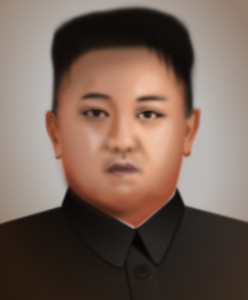North Korea Announces End to Negotiations
 Amidst the backdrop of increasing American sanctions and military action in the peninsula, North Korea announced on January 28th that the regime “has neither need nor willingness to sit at the negotiating table any longer.” The remarks come after President Obama’s YouTube interview, where he predicted the eventual collapse of the country. Further complicating matters, North Korea has begun planning military exercises with Russia, a country similarly isolated by Western sanctions.
Amidst the backdrop of increasing American sanctions and military action in the peninsula, North Korea announced on January 28th that the regime “has neither need nor willingness to sit at the negotiating table any longer.” The remarks come after President Obama’s YouTube interview, where he predicted the eventual collapse of the country. Further complicating matters, North Korea has begun planning military exercises with Russia, a country similarly isolated by Western sanctions.
North Korea’s aggressive overture signifies the end of preliminary efforts by the United States to dampen the country’s nuclear ambitions. In public, the North announced it would not undergo further nuclear tests if South Korea and the US did not conduct their annual military drills, which the State Department condemned as an “implicit threat.” Behind the scenes, American officials met with the North Korean foreign and nuclear ministers in Singapore to discuss a potential revival of the Six Party Talks, a dialogue that attempted to cease the North’s nuclear enrichment program.
The Six Party Talks talks began in 2003, bringing together the US, Russia, China, the Koreas, and Japan. However, in 2009 North Korea withdrew from the dialogue and declared it would pursue its nuclear program. Historically, the regime has a pattern of making empty promises followed by aggression: in 2012 it promised to allow inspectors to survey enrichment facilities for food aid, but conducted a nuclear test six weeks later. While fraught with problems from the outset, the talks offered the most hope for reducing the North’s nuclear enrichment.
North Korea’s recent alignment with Russia poses a major obstacle for resuming the Six Party Talks. In a global context, this relationship fits into “Putin’s Pivot,” a plan to burnish his reputation in the East and access new markets in the face of Western sanctions. The two countries conducted a similar joint tactical session once before in 2011; however, it focused mainly on humanitarian, search-and rescue practices. Highlighting the countries’ closer relations, Kim Jong-un plans to visit Russia later this year, his first overseas trip as Supreme Leader.
The significance of North Korea’s recent aggression in the region remains unclear. On one hand, the Kim regime typically asserts itself in the weeks before the US and the South conduct military exercises. So this recent outburst may fit in line with previous policy. Moreover, Russia may likely just want to prove that it can move eastward as the West tries to isolate it. Therefore, the potential military drills could simply mean to threaten the United States.
Conversely, the Sony hacking signifies North Korea’s growing capabilities to inflict harm on the west. The country’s ability to effectively and credibly wage cyber warfare may therefore motivate the Kim regime to display increased aggressiveness. In a larger context, the strengthening Russian-North Korean relationship may highlight the return of Cold War politics. The bipolarization of East and West could foreshadow more permanent political division. However, the Kim regime’s tightening relations with Russia may signify weakness between the Sino-North Korean bond; in response to Chinese attempts to rein in the North, Kim Jong-un may look to pursue another benefactor state. It remains unclear if Russia wants to play the expensive role as a patron.
Overall, much remains uncertain about North Korea’s motivations and capabilities. While on one hand the Sony hacking demonstrates the country’s increased ability to inflict damage on the US through unconventional tactics, the country has not yet proven itself capable of waging head-to-head warfare. Nuclear experts have not yet detected radioactive isotopes, and most experts agree the United States outclasses the North. Given the military disparity between the two countries, Kim Jong-un’s aggressive posturing may therefore be a rational movel, as President Obama directly challenged the regime. In an attempt to save face or mobilize popular support, Kim had no other choice but to act forcefully. It makes sense that the North turned to international belligerence to ensure domestic stability, especially considering the joint US-South Korean military drills
